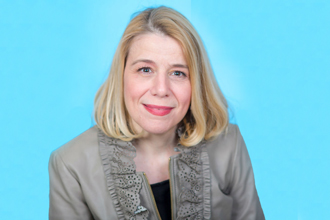Female scientists significantly less likely to be awarded federally funded research grants compared with male scientists

By Ana Gajic

Dr. Karen Burns
In a review led by St. Michael’s Hospital of Unity Health Toronto and McMaster University, researchers found that female scientists were significantly less likely to be awarded federally funded grants and New Investigator personnel awards compared with male scientists.
The review is published in the journal PLOS Medicine.
The researchers reviewed 55,700 grants and 4,087 personnel award applications submitted to the Canadian Institutes of Health Research (CIHR) over a 15-year period between 2000/01 and 2014/15.
The authors found that women submitted 31 per cent and 45 per cent of grant and personnel award applications respectively, yet had significantly lower grant success rates, especially for grants to conduct research in certain fields of health sciences.
“This research demonstrates that women scientists were less likely to receive research funding than men scientists in the previous funding scheme,” said Dr. Karen Burns, the study’s lead author and a clinician-scientist at the Li Ka Shing Knowledge Institute of St. Michael’s. “We found significant differences in grant success rates overall and identified significant differences in funding based on research content which favoured men scientists as well.”
Female applicants whose grant applications fell under the mandates of the institutes of Cancer Research, Circulatory and Respiratory Health, Health Services and Policy Research, and Musculoskeletal Health and Arthritis, were significantly less likely to be funded compared to men. Women who directed grants to the Institute of Aboriginal People’s Health (now the Institute of Indigenous Peoples’ Health) were more likely to be funded than men.
“The evidence does not tell us whether merit-based review led to appropriate funding decisions, or whether inappropriately higher standards for women are responsible for the findings. Going forward, we should remain alert to both possibilities,” said Dr. Gordon Guyatt, Distinguished Professor at McMaster University.
The researchers are calling for applicants, peer reviewers and funding agencies to exercise heightened awareness to the potential for bias in the evaluation of grant and personnel award applications and for funding agencies to monitor gender differences in grant success rates overall and by research content.
This paper is an example of how St. Michael’s Hospital is making Ontario Healthier, Wealthier, Smarter.
About St. Michael’s Hospital
St. Michael’s Hospital provides compassionate care to all who enter its doors. The hospital also provides outstanding medical education to future health care professionals in more than 27 academic disciplines. Critical care and trauma, heart disease, neurosurgery, diabetes, cancer care, care of the homeless and global health are among the Hospital’s recognized areas of expertise. Through the Keenan Research Centre and the Li Ka Shing International Healthcare Education Centre, which make up the Li Ka Shing Knowledge Institute, research and education at St. Michael’s Hospital are recognized and make an impact around the world. Founded in 1892, the hospital is fully affiliated with the University of Toronto.
About Unity Health Toronto
Unity Health Toronto, comprised of Providence Healthcare, St. Joseph’s Health Centre and St. Michael’s Hospital, works to advance the health of everyone in our urban communities and beyond. Our health network serves patients, residents and clients across the full spectrum of care, spanning primary care, secondary community care, tertiary and quaternary care services to post-acute through rehabilitation, palliative care and long-term care, while investing in world-class research and education. For more information, visit www.unityhealth.to.
